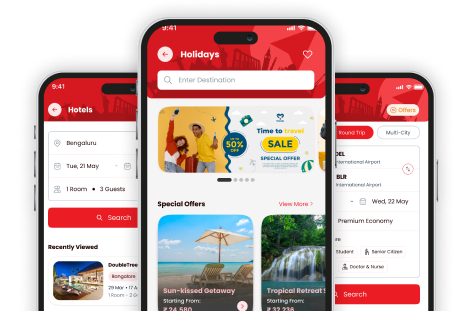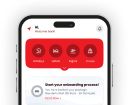Rand and therefore it is important that you change your home currency to the South African currency when you are in your home country. This would allow you to be on the safer side when you are heading to South Africa. You can also change your home currency to US Dollars and then change the currency at various international airports in South Africa. However, you must keep in mind that the exchange rate might not be the same everywhere so most airports and banks will have different rates. Some of the top end hotels and resorts do accept US Dollars but the exchange rates again are not very good, so make sure you have enough funds available in rands.
South African Rand Facts
| Overview |
South African Rand |
| Currency Name |
SOUTH AFRICAN RAND |
| Short Name |
ZAR |
| Symbols |
R |
| Unit |
1/100, CENT |
| Frequently Used Currency (Denomination) |
5C, 10C, 20C, R 1, R 2, R 5 |
Also, when you head for a South Africa trip you can carry your credit card and ATM card which will help you to carry a large amount of money with you and withdraw it as per your will.
For more details on planning a South Africa trip, call SOTC today.
South Africa Currency
The southernmost country in Africa, South Africa overwhelms travellers with its diversity and beauty. There are many places to visit in South Africa. The 25th largest country in the world, South Africa encapsulates all with its rich culture. This can also be seen in the diverse cuisine that the country has to offer.
Adventure, city life, culture, wildlife, sun-soaked beaches and breath-taking sceneries, South Africa has it all. Make sure to carry enough of the local South Africa currency with you when you travel to South Africa to enjoy a hassle-free holiday in South Africa.
South Africa currency information
The Rand is the South Africa currency name. It replaced the South African pound in the year 1961. One rand is divided into 100 cents. Currently, there are coins of 1, 2, and 5 Rands and 1, 2, 5, 10, 20 and 50 cents. Banknotes worth 10, 20, 50, 100, 200 and 1,000 ZAR are also in circulation.
The capital R is the symbol of the South Africa currency name. R100 thus denotes 100 Rands.
The South African Reserve Bank issues the South African Rand and the South Africa money gets its name from the Witwatersrand which is a ridge that has a major significance in the country. It is here that the maximum of the gold deposits in South Africa was found and is also the place where Johannesburg stands today.
The approximate exchange rates of South Africa currency Rand to the major currencies in the world are as follows.1 USD can be purchased for R 14.98, 1 EUR for R 16.59 and 1 GBP for R 19.71. These are the approximate conversion values of the South African currency name that keep changing on a daily basis, so it is best to check the present conversion rate online before getting your local currency converted to the South African Rand.
History of South African currency
Multiple currencies were in circulation in South Africa considering that the country was a trading center. The Guilder was the first official currency of the country. The Rixdollar then came into circulation in the late 17th century and this was also the first SA currency that included paper notes.
In the year 1826, the Sterling currency started to circulate in the country. This was also the time of the British occupation. This was along with some other currencies like the French francs, US dollars, Spanish dollars, and the Indian Rupees.
Only later, in the year 1921, the Reserve Bank of South Africa got established as the country’s Central Bank. In the year 1961, the pound was replaced by the South African Rand which allowed a decimal system. 1GBP could be purchased for 2 ZAR at that time.
Best place to exchange currency in South Africa
Getting your money exchanged in South Africa is pretty straightforward and follows the same money exchange rules as in most countries.
Banks, hotels, airports, and the money exchange counters can be approached to get the local South Africa currency. Shop around to get the best exchange rate for South African money.
Most banks will offer a lower exchange rate, however, there still is a cost involved. Check the exchange rates online first to get a fair idea of the present exchange rate which lets you know the exact worth of your currency and what you are getting from the currency exchange provider.
Another option is to withdraw money from an ATM of a South African Bank. This can get you a better rate for the ZAR but make sure to check the foreign conversion fees that your bank charges.
In South Africa, you will also meet people on the streets who will be calling out the South African currency name, ready to exchange money for you in the local South African currency for a much cheaper rate. If this tempts you then it is important to note that this is illegal. This method of exchanging money carries a big risk of getting cheated. Ensure to get your money exchanged in South Africa through an authentic source only.
Digital transactions in South Africa
Customers prefer cashless transactions and many upscale restaurants and hotels in South Africa honour this. Digital payments and the major debit and credit cards including MasterCard, Visa, American Express and Maestro card are accepted in the upmarket joints in South Africa. The smaller shops and restaurants, however, accept cash and coins in the South African currency only. It is thus advised to carry some South African currency along with the digital cards.
An important point that should be kept in mind when doing any digital transaction in South Africa is to let the bank charge you in the local currency. This saves you lots of money though you may have to do the conversion math yourself. Also, inform your credit card company that there could be some transactions on your card in a foreign country. Enquire about the exchange rate and fees that the credit card company charges on swiping the card in a foreign country.
Tipping in South Africa
Knowing the tipping etiquette in South Africa is a must before traveling to the country. The tourism industry in South Africa employs workers from the disadvantaged section of the society who rely on customer tips to meet their financial needs.
10% of the hotel bill amount is customary as tips to be paid at the front desk at the time of check out. This amount is then distributed to the various staff members. Porters in South Africa can be tipped around R3 to R5 per baggage at the airport or the train station. This even applies to the porters in the hotels.
A 10- 20% tip on the total bill amount is standard at restaurants but make sure to first check if the hotel charges a service charge.
The recommended tip for tourist guides is R10 per person for a day tour.
It is a standard practice to tip in South Africa, however there is no compulsion to do so. If the service offered is above expectation then you may tip more and if the service is not up to mark then you may choose to tip a smaller amount or to not tip at all.
....Read Less




